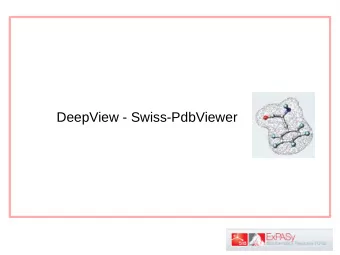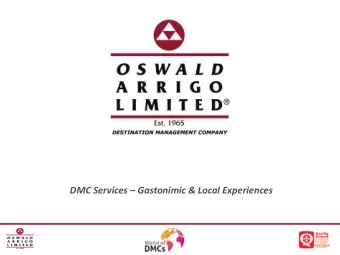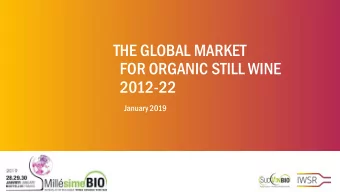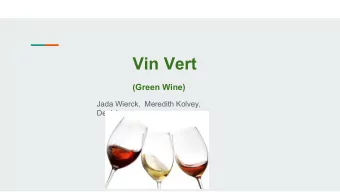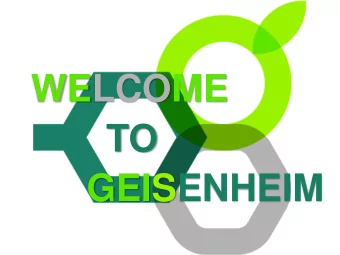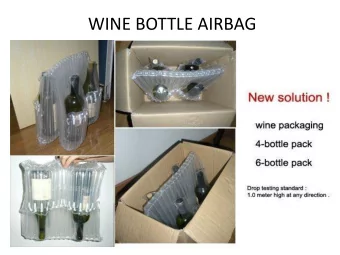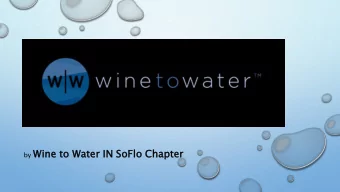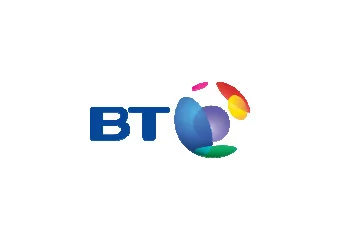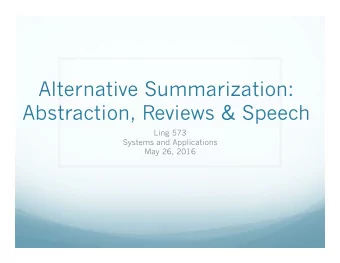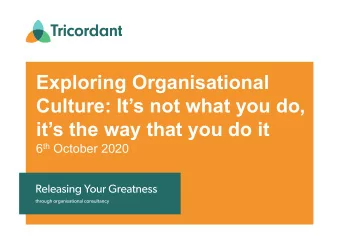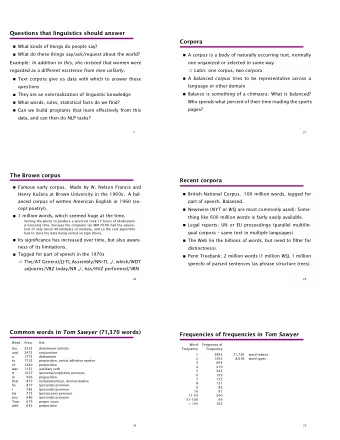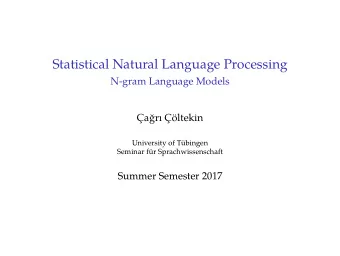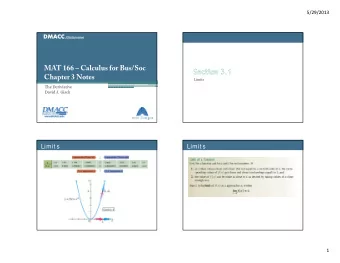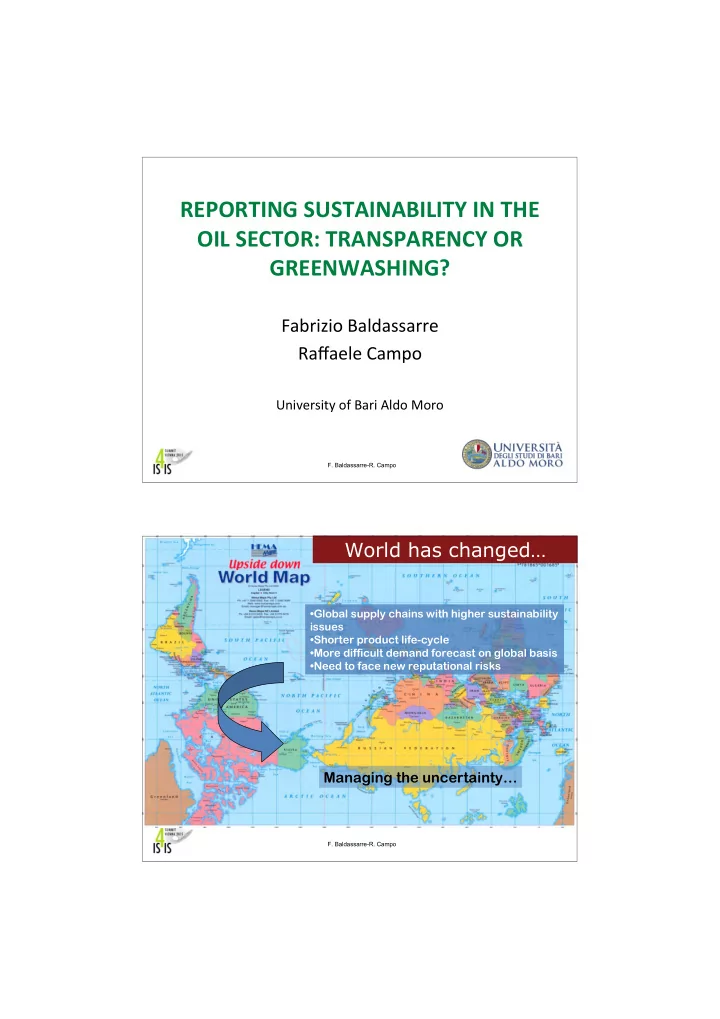
Dal vino al wine business Managing the uncertainty F. - PDF document
REPORTING SUSTAINABILITY IN THE OIL SECTOR: TRANSPARENCY OR GREENWASHING? Fabrizio Baldassarre Raffaele Campo University of Bari Aldo Moro F. Baldassarre-R. Campo World has changed Global
REPORTING ¡SUSTAINABILITY ¡IN ¡THE OIL ¡SECTOR: ¡TRANSPARENCY ¡OR GREENWASHING? Fabrizio ¡Baldassarre Raffaele ¡Campo University ¡of ¡Bari ¡Aldo ¡Moro F. Baldassarre-R. Campo World has changed… •Global supply chains with higher sustainability issues •Shorter product life-cycle •More difficult demand forecast on global basis •Need to face new reputational risks Dal vino al wine business Managing the uncertainty… F. Baldassarre-R. Campo
F. Baldassarre-R. Campo Sustainability as an opportunity for companies Porter and Van der Linde (2002) 1) They focus on the “new paradigm of international competitiveness” defining it as dynamic and focused on innovation: a new sustainable policy could be an innovative factor, because it would encourage companies to improve their products and processes to meet the requirements of a new demand 2) They support the idea that a sustainable approach creates an advantage for those companies that decide to undertake an innovative path based on sustainable principles more rapidly than the others: this is the “early mover advantage” F. Baldassarre-R. Campo
Sustainability as an opportunity for companies Miles and Covin (2000) Green marketing has benefits both from a reputational and a competitive advantage aspect: most of research shows that companies which have adopted eco-friendly initiatives have improved their financial indicators too. Financial and environmental performances are positively correlated. Some studies show that a higher environmental performance means a higher Return on Investment ( McGuire et al. , 1988; Russo and Fouts, 1997) but also higher profits and less perceived risks. F. Baldassarre-R. Campo Communication and Marketing Communica=on ¡is ¡fundamental ¡in ¡marke=ng. Pinske ¡ and ¡ Dommisse ¡ (2009): ¡ it ¡ is ¡ essen=al ¡ for ¡ consumers because ¡they ¡need ¡to ¡be ¡informed ¡about ¡the ¡benefits ¡sprung ¡by their ¡responsible ¡choices ¡in ¡terms ¡of ¡purchases Bronn ¡and ¡Vrioni, ¡2011; ¡Mark-‑Herbert ¡and ¡Von ¡Schantz, ¡2007: it ¡is ¡important ¡to ¡improve ¡a ¡company’s ¡reputa=on Also ¡in ¡reference ¡to ¡sustainability F. Baldassarre-R. Campo
Communication and ISO 14031 It is focused on the evaluation of an environmental performance in the context of an environmental management system: the evaluation process is presented as a sequence of actions inspired by the Deming cycle (Plan- Do- Check- Act). Plan Environmental performance evaluation plan Indicators selection for environmental performance evaluation Do Developing and using data and information Collecting data Analyzing e converting data Assessing information Reporting & Communicating Check & Act Reviewing and improving environmental performance evaluation F. Baldassarre-R. Campo Sustainability Report Lozano and Huisingh (2001): sustainability report “is a voluntary activity with two general purposes: (1) to assess the current state of an organisation’s economic, environmental and social dimensions, and (2) to communicate a company’s efforts and Sustainability progress to their stakeholders. Global Reporting Initiative: “A sustainability report is a report published by a company or organization about the economic, environmental and social impacts caused by its everyday activities. A sustainability report also presents the organization's values and governance model, and demonstrates the link between its strategy and its commitment to a sustainable global economy.” Shaltegger et al. (2006) : “The term sustainability reporting is usually used to refer to the publications of external reports, as either printed brochures or electronic versions on Internet. However, one main of effect of sustainability reporting is the involvement of management and employees in setting sustainability goals for the corporation, collecting data, and creating and communicating sustainability information.” F. Baldassarre-R. Campo
Reasons for reporting (Kolk, 2010) Reasons for reporting Enhanced ability t o track progre ss against specific targets Facilitating t he implementation of t he environmental strategy Greater awareness of broa d environmental i ssues throughout the orga nisation Ability to c learly convey t he corporate message interna lly and e xternally Improved a ll-round c redibility f rom greater transparency Ability to c ommunicate efforts a nd standards License to ope rate and c ampaign Reputational be nef its, c ost savings identification, i ncreased e fficiency, e nhanced business development opport unities and enhanced staff m orale Reasons for non-reporting Doubts a bout the advantages it would bri ng to t he organisation Competitors are ne ither publ ishing re ports Customers (and t he general public) are not interested i n it, i t will not i ncrease sales The company a lready ha s a good re putation f or i ts environmental performance There are many ot her ways of communicating a bout environmental issues It is too e xpensive It is difficult t o gather consistent data from a ll ope rations and t o select correct i ndicators It could damage the reputation of the company, have legal implications or wake up ‘sleeping dogs’ (such as environmental organisations) ! F. Baldassarre-R. Campo Communication of sustainability: transparency or greenwashing? Some=mes ¡ some ¡ companies ¡ are ¡ accused ¡ of ¡ being irresponsible, ¡ in ¡ spite ¡ of ¡ ¡ what ¡ they ¡ report: ¡ are sustainability ¡reports ¡a ¡limited ¡tool? Glazer, ¡Kanniainen ¡and ¡Poutvaara, ¡2010: ¡A ¡communica=on based ¡ on ¡ falseness ¡ can ¡ contribute ¡ to ¡ develop ¡ a ¡ bad reputa=on, ¡which ¡can ¡cause ¡a ¡drop ¡of ¡costumers ¡or ¡even ¡a boycoX What ¡does ¡it ¡mean ¡greenwashing? F. Baldassarre-R. Campo
Communication of sustainability: transparency or greenwashing? Obviously ¡companies ¡can ¡choose ¡between ¡two ¡ways: ¡transparency, showing ¡real ¡data, ¡or ¡greenwashing, ¡masking ¡their ¡real ¡a[tude ¡and relying ¡on ¡appearance, ¡with ¡risks ¡for ¡reputa=on ¡and ¡boycoX ¡ac=ons (Glazer, ¡Kanniainen ¡and ¡Poutvaara, ¡2010). COMMUNICATING SOCIAL RESPONSIBILITY DOES NOT MEAN AUTOMATICALLY THAT WHAT IS DECLARED IS TRUE! F. Baldassarre-R. Campo Controversies in the oil sector ¡ Cases ¡of ¡two ¡of ¡the ¡largest ¡companies ¡in ¡the ¡ oil ¡sector ¡ Why ¡did ¡we ¡choose ¡this ¡sector? ¡Because ¡it ¡is ¡one ¡of ¡the ¡most ¡cri=cized ¡for ¡its ¡impact ¡on environment F. Baldassarre-R. Campo
Controversies in the oil sector Methodology A ¡ mul=ple ¡ case ¡ study ¡ approach ¡ (Yin, ¡ 2009) ¡ has ¡ been applied. ¡Two ¡of ¡the ¡largest ¡oil ¡company ¡have ¡been ¡chosen, BP ¡and ¡Eni. ¡These ¡companies ¡dra_ ¡a ¡sustainability ¡report, providing ¡ a ¡ lot ¡ of ¡ data ¡ and ¡ informa=on ¡ about ¡ their aXen=on ¡to ¡safeguard ¡the ¡environment ¡and ¡to ¡have ¡also ¡a posi=ve ¡impact ¡on ¡society. ¡In ¡this ¡study ¡researchers ¡have compared ¡these ¡two ¡cases, ¡spotligh=ng ¡the ¡controversies which ¡ some=mes ¡ are ¡ stressed ¡ in ¡ the ¡ public ¡ opinion. Researchers ¡ have ¡ analyzed ¡ these ¡ two ¡ companies ¡ reports and ¡ then ¡ they ¡ have ¡ compared ¡ the ¡ informa=on ¡ gathered from ¡this ¡document ¡to ¡their ¡image. F. Baldassarre-R. Campo Eni and its sustainability report F. Baldassarre-R. Campo
Recommend
More recommend
Explore More Topics
Stay informed with curated content and fresh updates.



